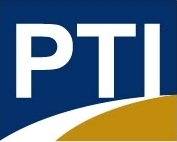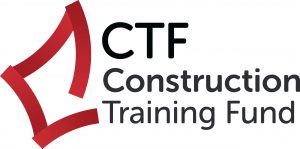
$495 pp
$396 pp
Conditions Apply
Overview
This course is meets the requirements of two nationally recognised units of competency:
- UEECD0007 – Apply work health and safety regulations, codes and practices in the workplace
- UEERL0003 – Conduct in-service safety testing of electrical cord connected equipment and cord assemblies
These units will give you the skills and knowledge required to conduct in-service safety testing of electrical cord connected equipment and cord assemblies.
The Electrical Test and Test program will prepare you to:
- Prepare to enter an electrotechnology workplace
- Apply safe electrotechnology working practices
- Follow electrotechnology workplace procedures for hazard identification and risk control
- Prepare to test cord connected apparatus and cord assemblies
- Test cord connected apparatus and cord assemblies
- Tag cord connected apparatus and cord assemblies and document testing activities
Location: Perth/Landsdale
Course Components: Pre-requisite E-learning unit UEECD0007 and practical face-to-face training unit UEERL0003
Duration: E-learning + Face-to-Face 6 hours
Cost: $396
Corporate bookings: (Please contact us)
UEECD0007 – Apply work health and safety regulations, codes and practices in the workplace
This unit involves the skills and knowledge required to apply work health and safety (WHS)/occupational health and safety (OHS) regulations and codes of practices in the electrotechnology workplace.
It includes applying safe working practices, following workplace procedures for hazard identification and risk control. It also includes electrotechnology worker responsibilities and application for health and safety, risk management and adherence to safety practices as part of electrotechnology work functions when preparing to enter a work area.
No licensing, legislative or certification requirements apply to this unit at the time of publication.
UEERL0003 – Conduct in-service safety testing of electrical cord connected equipment and cord assemblies
This unit involves the skills and knowledge required to conduct in-service safety testing of electrical cord connected equipment and cord assemblies.
It includes working safely, using portable appliance tester (PAT), identifying faults, applying tagging, arranging for repair of faulty equipment and complete testing documentation.
No licensing, legislative or certification requirements apply to this unit at the time of publication.
There are a few entry requirements for participants to successfully complete the qualification. These entry requirements are as follows:
Communication
Participants are required to speak and write in English along with good literacy and numeracy skills. To meet the competency of this course, participants will be required to read and write detailed reports and communicate complex skills to other participants.
All participants requiring any further assistance in literacy or numeracy support may be referred to a third-party provider at an additional cost. Once the participant is ready they can then commence the course.
Physical capacity
Must be able to have a good level of fitness to be able to conduct good manual handling techniques, e.g. safely pick up 20kg and conduct 10 minutes of mild continuous exercise.
Access to Technology
Learners are also required to have access to a computer or lap to enable them to complete the eLearning component
Policy
Notification of cancellation or transfer
All cancellations, transfers, or variations to face to face course bookings must be received in writing by emailing Client Services.
Cancellations – a student withdraws from a course.
| Minimum Notice Periods *where “working days” means Monday to Friday | |||
| Course Type | Full Refund of Course Fee | 50% Refund of Course Fee | No Refund of Course Fee |
| Half or full day courses | 2 working days | Not applicable | <2 working days |
| Longer courses (2+ days) | 7 working days | 4-6 working days | <3 working days |
| Online courses | If course not commenced | Not applicable | Once course commenced |
Transfers – a student changes to a different course date.
| Minimum Notice Periods *where “working days” means Monday to Friday | |||
| Course Type | No Charge | 50% Refund of Course Fee | 100% Charge of Course Fee |
| Half or full day courses | 2 working days | Not applicable | <2 working days |
| Longer courses (2+ days) | 7 working days | 4-6 working days | <3 working days |
Substitutions – a student is no longer able to attend and the employer sends another person instead.
An alternate learner may be substituted for a face-to-face course prior to the commencement of a course at no additional cost.
(Applies if there is no prerequisite online component)
Non-attendance
If a learner fails to attend a course, no refund will be payable. A voicemail message on PTI answering service, outside of business hours on the day before the course, is not accepted as a notification of cancellation.
If a learner is sick on the day of their course and can support this with a medical certificate, they will be transferred to an alternate date at no charge.
If the learner has failed to attend due to any other reason no refund will be payable, but a course transfer may be granted at the discretion of the Administration Manager.
Course Cancellation by PTI
In the event that PTI, or any third party delivering training and assessment on its behalf, closes, cancels, or ceases to deliver for any reason, a course or part of a course that a learner is enrolled in, a refund of fees paid for services not provided will be given to the learner by PTI. Learners who have already been assessed as competent for some units will be issued a Statement of Attainment for these units and the costs of issuing the Statement(s), including training, assessment and administration fees, will be deducted from the refund total.
PTI also reserves the right to cancel any course if insufficient registrations are received. Should this occur, those who registered will be notified and their course fees refunded in full or they will be transferred to another course. PTI will not be liable for any claims arising from course cancellation.
Exceptional Circumstances
PTI aims to be flexible and accommodating and recognises that in some cases there are exceptional circumstances where a charge may not be incurred. This discretion applies to cancellations, transfers, and non-attendance, as listed above. Exceptional circumstances could include serious illness or injury, death in the family.

